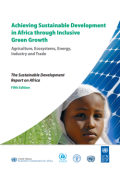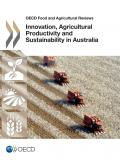
This report explores inclusive green growth (IGG) in Africa, an issue of significance for the region due to its potential implications for transformation and sustainable development. It examines the challenges and opportunities for inclusive green growth in selected sectors of the economy, in which targeted investments with accompanying enabling measures could spur transformational sustainable development. The case studies contained in the report were largerly informed by the following four country studies on inclusive green growth:
For more than a century and a half, the world’s economies, industries, and even financial sectors have developed around relatively cheap, readily available fossil fuels and abundant land. Governments and corporations have invested trillions of dollars in fossil fuel and land development, and nearly every economic sector in every country is affected by the cost, reliability, and availability of energy derived from fossil fuel. This study focuses on the four fossil fuel industries - oil, coal, natural gas, and fossil fuel electricity generation - evaluating the potential impact that a transition to a low-carbon economy might have on investors, consumers, producers, and governments and, crucially, how policy can shape that impact. Through a series of modeling exercises that detail potential transition mechanisms, it shows that policy is the main determinant of winners and losers. Based on this concept, this paper summarizes the main findings from this analysis, drawing the main lessons from each of the four separate analyses of global and national oil, coal, gas, and fossil fueled power industries.

The win-win opportunities connected to green growth are appealing to academics and policy makers alike, but empirical evaluations about the effectiveness of green growth policies are still scattered. Taking the Republic of Korea as a case study, which set up a highly ambitious green growth program in 2009, this research casts light on the extent to which the Korean Green Growth Strategy has been effective in decarbonizing the economy.
In Morocco, the potential for solar and wind energy generation is enormous and could be exploited for addressing not only energy security concerns, but also pressing social and economic needs. Smart policy design that integrates different policy objectives can have long-lasting effects, stimulating competitiveness across the economy.
